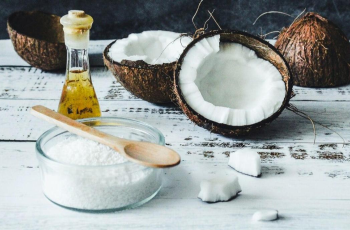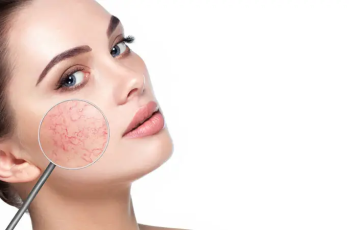
Reveal a brighter, more even complexion with the most effective skincare ingredients.
The superheroes of the beauty world are definitely antioxidants in creams and serums—if you’re not using them yet, you’re missing out.
“Antioxidants neutralize what are called free radicals,” explains Dr. Mona Gohara, associate professor of dermatology at the Yale School of Medicine.
“Free radicals are essentially nasty little chemical particles that cause cosmetic damage to our skin.” The effects include fine lines, wrinkles, uneven skin tone, and sagging skin.
All antioxidants protect the skin from free radical damage (also known as oxidative stress), and they have other specific benefits for the skin.
While many skincare routines contain multiple antioxidants, it may be helpful to initially focus on products whose primary antioxidant supports your specific skincare goals. Here’s what that means.
Smoothing: Vitamin A
SkinMedica Retinol Complex .25
CeraVe Renewing Retinol Serum
Obagi Medical Retinol 1.0
Retinol and retinoids, derived from vitamin A, are essential for the production of collagen and elastin. They are considered the “number one anti-aging ingredient” recommended by dermatologists, says Dr. Morgana Colombo of Reston Integrative Dermatology and Skintap.
Vitamin A products work in two ways: They boost skin cell turnover, which creates an exfoliating effect. They also boost collagen and elastin production, which reduces fine lines and wrinkles for a more even skin tone and appearance.
Other benefits include reducing UV-induced skin damage and preventing further damage. They may cause mild irritation and work best in combination with a nourishing moisturizer.
To smooth and rejuvenate your skin, look for products labeled “retinol” or “vitamin A,” or ask your dermatologist about prescription retinoids.
Brightening: Vitamin C
La Roche-Posay Vitamin C Face Serum
Obagi Medical Professional C Serum 20%
SkinMedica Vitamin C+E Complex
If you want a radiant complexion or to combat pigment-related skin issues like melasma or acne scars, vitamin C is the antioxidant for you. It can make skin more radiant, brighter, and more even-toned, says Dr. Gohara.
Vitamin C helps reduce melanin production, fights hyperpigmentation, boosts collagen production, and even protects the skin from UV damage. It’s often used with vitamin E because the two ingredients stabilize each other for even better results.
Look for formulas with between 10% and 20% vitamin C, preferably in combination with vitamin E or another antioxidant.
Calming: Niacinamide
SkinCeuticals Metacell Renewal B3
EltaMD UV Clear SPF 46
The Ordinary Niacinamide 10% + Zinc 1%
If inflammation or irritation is one of your biggest skin concerns, you should opt for a niacinamide-based product. Niacinamide has better anti-inflammatory properties than other antioxidants, making it ideal for people with acne, rosacea, or generally sensitive skin, Dr. Gohara explains.
Niacinamide can also soothe sensitive skin by moisturizing, strengthening the skin barrier, and supporting the production of ceramides, an important component of the skin. This keeps the skin hydrated and looking healthy and smooth.
Look for products that have “niacinamide” or “vitamin B3” on the label or where the ingredient is at the top of the list.
Hydrating: Hyaluronic Acid
Vichy Mineral 89
SkinMedica HA5 Renewal Moisturizer
CeraVe Hydrating Hyaluronic Acid Serum
This antioxidant helps maintain optimal skin health because it binds water and provides optimal hydration to the skin. This supports skin cells. Hyaluronic acid can reduce the appearance of fine lines and wrinkles.
Healthy, moisturized skin also increases cell production, making the skin look softer, smoother, and more radiant. Our body’s natural hyaluronic acid levels begin to decline at age 20, so topical application becomes even more important then.
Look for products that say “moisturizing” on the label and have “hyaluronic acid” or “sodium hyaluronate” in the ingredient list.

